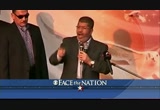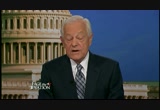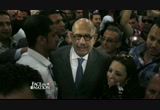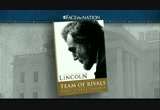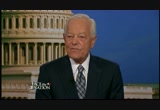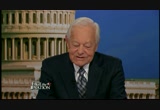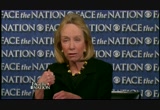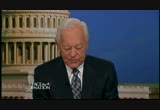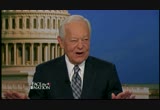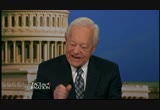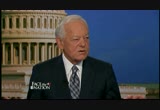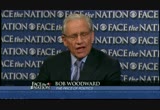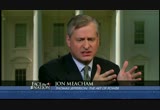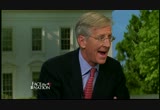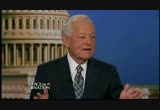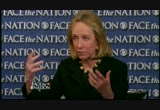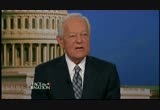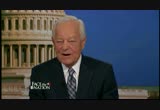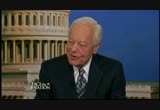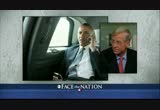tv Face the Nation CBS November 25, 2012 8:30am-9:00am PST
8:30 am
holding, but the ensuing power grab by egyptian president mohamed morsi has set off a new firestorm across egypt. we'll have the latest on that. then we'll take our annual turn to books. we'll talk about presidents past and present with the legendary bob woodward, whose latest is "the price of politics." historian doris kearns goodwin's "team of rivals" is the basis for the new "lincoln" movie. former "newsweek" editor evan thomas is the author of "ike's bluff." and jon meacham's new book is "thomas jefferson: the art of power." for fun, we'll explore the darker side of fiction with gillian flynn, author of the big bestseller, "gone girl." mystery writer david baldacci, whose new one is forgotten. david baldacci, author of "the expats," and then there is alex stone, whose "fooling houdini" tells how he chose magic over
8:31 am
physics, and, yes, he fooled us and he'll fool you, too. how did you do that? we were all about books this morning, just like another washington shopper this weekend. >> we're going to get those. >> okay. >> schieffer: because this is "face the nation." captioning sponsored by cbs from cbs news in washington, "face the nation" with bob schieffer. >> schieffer: and good morning again. well, just hours after helping negotiate the cease-fire between the israelis and hamas, egyptian president mohamed morsi declared more power for himself and said he was immune to judicial oversight. that has set off violent protests between morsi's muslim brotherhood, and the opposition parties. police used terd gas in cairo yesterday. more than 500 have been injured and egypt's judicial branch is
8:32 am
joining with the opposition in protest. both sides have announced plans for major protests in cairo on tuesday. cbs news correspondent holly williams is in cairo this morning. holly, what can you tell synonymous. >> reporter: well, bob, what we're seeing here today in central cairo is violent clashes. they're fighting running street battles in the area around tahrir square, so the protesters throw stones and sometimes hurl obcents at the police. they push their way down the street and after a while the police fire back with tear gas canisters or drive an armored car down the street, and the street is then cleared. the numbers are actually fairly small. i would say there are between 1,000 and 2,000 protesters, and only some of them are violent. as you said, both sides are planning big protests on tuesday, and given what we're seeing, i don't think it would be surprising if we see violent clash betweens the two sides. but you get the sense egyptian liberals and opponents of
8:33 am
president morsi who are not out on the street today are really trying to work out how they should respond and what they can do. the egyptian judges' club has called on judgeses to go on strike. we don't know what kind of impact that's going to have. several people have launched legal challenges to president morsi's decree, but given that he's now said he's immune to the courts, that may be completely irrelevant. yesterday he heard from-month-old elbar die. the former director general of the i.a.e.a. he said there can be no dialogue with president morsi. that tbifs you how sense polarized things are here. he went on to say he's sure the military is worried and perhaps they will intervene to restore stability. that's an extraordinary thing for a proponent of democracy to say and perhaps does not body well for egyptian democracy. both president morsey and his supporters are saying this is temporary, that once egypt has a new constitution and a new parliament next year, the president will relinquish these powers.
8:34 am
the problem is, of course, that history is littered with examples political leaders who have given themselves special powers. they've said temporarily and then it's ended up being anything but temporary in the end. >> schieffer: all right, well, thank you so much, holly. and be safe. and now to our first panel this morning. we're joined by bob woodward, who has written 12 books about presidents, the latest "the price of politics." doris kearns goodwin's bestseller "team of rivals," the rise observer the new "lincoln" movie. she was an adviser on that. she's also written about l.b.j., and the kennedy. evan thomas, "ike's bluff," all about president eisenhower's years in the white house. and jon meacham's new book is "thomas jefferson: the art of power" and it just debuted right up there at the top of the "new york times" bestseller list. it's now at number two. well thank you for coming. you know, as i read these books-- and, evan, i finished yours last night-- something occurred to me.
8:35 am
lincoln, jefferson, eisenhower, they were all great negotiators. they were all compromisers. and then i read your book earlier this year, bob woodward, about president obama and this stalemate over trying to find some kind of way to keep the government running here in washington. it occurs to me that what seems to be lacking these days is this ability of modern politicians to compromise. i sometimes wonder if they-- if they've forgotten how to do it. >> one theme is the president, no matter who is president, is the chief strategist. they set the tone. they say this is how we're going to do things and fix things. in the case of obama and the first term, and the economic issues, he didn't fix them. and he didn't find a way to work his will. and you see lincoln and jefferson and eisenhower did. now, we're catching obama midstream.
8:36 am
he still has another four years. the interesting question is going to be how he takes victory. we know how romney has taken defeat-- not very well. and he is grousing. what has obama learned? how is he going to say, "we're going to fix some of these things, not just play politics? >> schieffer: well, doris, you lived with lincoln for a long, long time when you wrote this book. you got to know a lot about him. now you've been working with the folks who made this movie. what are the lessons for barack obama from abraham lincoln? >> i think the most important less offense the movie ill straights by getting the passage of the 13th amendment through a really fraction congress, you do everything you can. he said i'm closed with immense power. you get me those votes. that means assignments. jobs. it means looking to the history of the person, making them want to feel better that they've done something important, low-level stuff. it's messy. it's compromising.
8:37 am
it doesn't look pretty but it gets the job done. i think that's the same thing l.b.j. did did. if l.b.j. were there now trying to get the fiscal cliff, they would be sleeping in the white house. mcconnell would be in one room, and boehner and another and l.b.j.s this would be parading around in his robe. if they remain obstructionist, teddy roosevelt is another example. me knew he couldn't get the republican party by being nice and offering things. he needs mobilizing pressure from the outside in. president obama has the base. it's still mobilized and there's got to be a way-- maybe he should take a train trip around the country. get the immigration bill signed because people proper you from the outside in. >> schieffer: evan, what came back to me as i was reading your book is that, that eyes hour i that eyesen hour in his own way was a very good politician, and
8:38 am
i don't think he's gotten credit for that. earlier this year, i moderated a seminar on l.b.j., and i asked evan duggan, one of lyndon johnson's young aides at the time, i asked him, "who did l.b.j. admire as a politician? is it and he surprised by everyone saying he thought the best politician he ever knew was dwight eisenhower. not just because of what he was able to do to get people together as supreme allied commander, but he said something and i saw it time and again in your book. he said eisenhower had a way of getting his way without you knowing that's what he wanted you to do. >> well, he'll had a great kind of confidence, the confidence to be humble. he was-- ike said it was a problem but in the end i knew i was in charge-- this was in world war ii. he had that kind of confidence.
8:39 am
he didn't have to show anything. he knew at the end he would decide but he let peeled have their egoes, let them bounce off each other, and he was patient, a quality i wish i had more of. but-- well, i wish we all had more of. he was patient. he didn't decide until he absolutely had to. and he could tolerate enormous dissidence, and clashing egoes, knowing at the end of the day he was the one who would decide. >> schieffer: he was so confident-- and i take this from area yew book-- he was not afraid-- and i can't imagine any politician today who would have that much confidence-- he was not afraid to leave the impression that he didn't know about something when in fact he probably did, and often. >> he was famous for his bad syntax in press conferences. so for the press, which was lazy and maybe even lazier than today, thought he was dumb. he was not. one time before a press conference, they were saying, "mr. president, you have to be careful what you say here." and he said, "oh, don't worry. i'll just confuse them."
8:40 am
( laughter ) and he did. he had the confidence to be able to deal with that. sometimes you have to be a little opaque. sometimes you have to be very clear. he also knew when to be clear. >> schieffer: you know, jon, the thing i find interesting, and it just reminds us-- you know, we have this great debate today about big government versus small government. >> right. >> schieffer: thomas jefferson was a small government guy, and yet, he had these big ideas. when it came time to purchase, you know, the half of the continent here with the louisiana purchase, he went right out and did it because he saw this as a continental nation. >> he was a small government guy unless he was in charge of big government. i think one thing all these subjects have in common is as long as they were in charge, they could pretty much justify damn near anything. jefferson believed that the ground of lib tefs gained by inches. and even though he lived through these amazingly tumultuous times and born the subject of kings and dies as the presidentave new
8:41 am
country, he understood that compromise was the essence of politics. and i think we sometimes think of jefferson as-- we think of eisenhower as kinds of bumbling. jefferson we think of as the renaissance man, it's monticello. it's wine. it's farming. it's gardening, it's all beautiful. but fundamentally he spent 40 years as a working politician. and i think the fact he got things done and took great there tr in it should give us all hope. >> schieffer: why is it we seem to have lost the whole idea of compromise now? politicians don't know how to do it anymore. you talked about how l.b.j. brought them into the white house and wouldn't let them out >> i think part of it was the tension there. politics stayed there on the weekend. they didn't go home to raise money. money is the poison in the system. when dirkson was needed by
8:42 am
l.b.j. for the civil rights act, they would a friendship. also they had been in world war ii, in the military. you have the television that honors people who are extremists on either side. you have districts so apportioned. so the political culture has to change somehow. so maybe we do need to just put them all together in a room and not let them out. >> but so much of it is defined by the president, obama. and there are people who work with obama and know him and say the only problem he's got is he doesn't like people, and he doesn't like politics. ( laughter ) and that is a hindrance. and you talk to people who deal with him. like daul ryan, who ran for vice president unsuccessfully. and he says, you know, they don't like us. they won't-- we don't talk to them. there is not-- when obama has people down for the super bowl, he sits in front with his buddies, and doesn't do the lyndon johnson and so people--
8:43 am
you know, i remember katherine graham, the publisher of the "post" used to say it's very hard to not like someone who says they like you. well, obama sends the message, you know, "i'm really out of tune with you." >> schieffer: the other side of it is, there may be some people on the other side that are flotall that friendly-- are not all that friend lead. >> they have to come to dinner if you ask them. it is both sides. i think the other thing is obama, for whatever reason, has not had a partner in his view, who can make this deal. and it does require, i think, doirs is right, i think it requires both party bases to also give permission for compromise. the middle way is not always the right way. compromise is not itself a virtue. but until we find a better system, which we haven't yet, we have to figure out-- >> but the extraordinary power of that office of the presidency, you've all written
8:44 am
about it. and in this era, the obama era now, the concentration of power is even greater. and so the influence he can have-- certainly there are problems on the other side, but, you know, all of the presidents you've written about had problems on the other side, and they found a way to grab it. >> there are simple things you can do-- play golf. eisenhower played golf 800 times as president. that's a lot of golf. but he played with his political opponentes, too. when he was centering it trouble with bob taft, the majority leader of his party and yo and they were fighting, eisenhower played golf with them. i understand in the democratic caucus, they're saying, the guy-- they keep track of how many times obama has played golf and they're asking each other, "have you played golf with him? you have played golf with him?" none of them have played golf with him. >> the white house is a huge political asset which has been used. so many of those guys have not been to the white house. the lower level congressmen and
8:45 am
senators, they'd give anything-- i know he should have dinner with his family, but have a cocktail hour every night and bring over 40 congressmen as a group and they all run around the white house. >> schieffer: we're going to have to take a break here. we'll be back in one minute with more of this. was so wrong about you. other next, we get priority boarding on our flight i booked with miles. all because of the card. and me. okay, what's the plan? plan? mm-hmm. we're on vacation. there is no plan. really? [ male announcer ] the united mileageplus explorer card. the mileage card with special perks on united. get it and you're in. monarch of marketing analysis. with the ability to improve roi through seo all by cob.
8:46 am
and you...rent from national. because only national lets you choose any car in the aisle... and go. you can even take a full-size or above, and still pay the mid-size price. i'm going b-i-g. [ male announcer ] good choice business pro. good choice. go national. go like a pro. >> schieffer: back now with our panel. jon meacham, let's say thomas jefferson realized he had a fiscal cliff the country was going to go over. what do you think he would do? >> one thing he did every night when congress was in session, more or less, he had lawmakers down to dinner. he broke with the federalist cut canom of precedent asks very formal dinners and formal toftsz. he had what he called pell-mell. people came down, sat down, sat wherever they could, and they would have dinner together. he would write family members and say i'm going to be an
8:47 am
unpunctual correspondence because dinner is here and i'm going to have dinner every night with the lawmakers. it does help on the margins and as we know, politics is decided on the margin. >> one i think i think it's not just for the fiscal cliff, but if our economy is going to need mobilization to get more jobs here, fewer exports abroad, then you've got to have some c.e.o.s come in, like f.d.r. did. f.d.r. brought in the head of chrysler and sears and roebuck. he had two top republicans in his cabinet, and i know c.e.o.s don't like to come to government because they have to give out all the stuff they have, those taxes. those are the people i think that want to help their country. the country has been so good to them. arlet them try to figure out how to get our country moving again. >> and i think obama has to realize the moment. for a re-elected president there
8:48 am
is so much good will out there, even among his opponents. now, we had an election which i think was decided but not decisive. there were, what, 57 million people who voted for romney. and there is a way that obama can kind of step forward and say, "these are the ideas. this is the method we're going to do this." he can-- i mean, you know, you talk to this man-- i mean, you don't get to talk to the people you write about. i get to talk to obama and say, "why did you do this? what happened here?" and he has good answers. he equips himself very well, and he needs to say, this is the theory of the case. this is how we're going to work this out. and the capacity and the good will with there. >> he said-- he's-- his best speech ever, i thought, was when he gave his race speech in 2008. he did that without the help of a lot of political consultants. my memory of this is they were
8:49 am
mostly against him giving the speech. they said, "oh, my gosh. you can't mention race." he did this on his own. he needs to get away from the consultants who told him what to do this time and around talk about the hard stuff we have to do, which consultants don't like to do. political people are like-- oh, no-- >> schieffer: isn't that the fact, most of the things political consultants tell politician to do, had any of the people you wrote about-- excluding bob here-- had done what the consultants told them to do they would have had entirely different presidencyies. >> he's won. he has nothing left to run for. he can say good-bye to his consultants if are the time being. >> the night he won this election this time around. he gave a great speech that night, too. in which he said you have made me a better candidate. your stories and struggles i'm going to take with me to the presidency. i think the problem with the white house is it does become a bubble as we said. he needs to recorrect. that's when he makes great
8:50 am
speeches, whenw he has the audience there and is feeling people's concerns and maybe getting out of the white house more. >> schieffer: would consult vantz told lincoln to try to repeal the amendment-- >> obviously not. they said you don't have the votes. why are you going to tarnish your victory on a hughes struggle. but he said it's time. he had a sense of timing. timing is critical for leadership. and to have timing, like f.d.r., you have to have a feel for the country. it's all connected. you have to get out of there. you have to get neem there. >> the thing about doubling the size of the country when the louisiana purchase came, jefferson believed that he had to have a constitutional amendment to do because it was not an enumerated power and he was, as you said air, small government guy. so he's going to go to the country, six weeks pass, he gets a letter saying panolan was rethinking what was the worst real estate deal in history. and jefferson suddenly said, "constitutional amendment? what constitutional amendment?" it was casa blanka. it was claude raines.
8:51 am
what are you talk about? the other thing jefferson did after a horrible election, even closer than this one in 1800, we are all federalists. we are all republicans. and he, too, had a candid moment where he said, "i will not please all of you all the time. but i wish you would be merciful to some extent if you do not have the view i have. so before you censure me, be careful." and i think that kind of conversation-- people appreciate candor because we all know it's true. >> schieffer: here's a candid moment. i'm going to have to take a break here. back in a second. we're sitting on a bunch of shale gas. there's natural gas under my town. it's a game changer. ♪ it means cleaner, cheaper american-made energy. but we've got to be careful how we get it.
8:52 am
design the wells to be safe. thousands of jobs. use the most advanced technology to protect our water. billions in the economy. at chevron, if we can't do it right, we won't do it at all. we've got to think long term. we've got to think long term. ♪ we'vecompanies used to see long us as demographics. we've got to think long term. because they couldn't see what made people different. today, retailers from the us to japan are using analytics to find insights
8:53 am
in social chatter, reviews and sales transactions. helping some companies increase online revenue up to 50% by offering customers an experience as unique as they are. that's what i'm working on. i'm an ibmer. let's build a smarter planet. >> schieffer: back now with our panel. doris, i know you spent time with daniel day lewis, who gives this magnificent portrayal of lincoln in the movie. >> what he wanted to do was go to springfield as soon as he agreed to become lincoln. two years before he would begin filming, and he wanted to know where lincoln had lived. so we walked through the house. he sees the low ceilings. he feels claustrophobic, can't wait to get out of there. he wants to know how did linkon walk. we talked about the fact that people knew he walked like a laborer. you see that walk in the as lincoln walking. what was his voice like? and we knew he hay high-pitched voice. what did he do in his time and
8:54 am
we constantly told stories. so the warmth and humor of lincoln, even in that time when we walked around the law offices and the library, they showed him all the forward documentes, he was absorbing lincoln. >> schieffer: so this was two years before-- >> this was two years. and he said he wouldn't start filming until one year later, and now the movie is out. no, it's actually one year. it was one year. you feel like you're watching him. >> schieffer: bob final thoughts. >> i'm interested in what obama's second inaugural is going to be like. this is the big moment for clarity. i remember when i was in the navy, not in the first world war, or-- ( laughter ) but the vietnam era. there was an executive officer on the ship who had a plaque glued to his desk that said the following, "he who does not know to which port he is sailing has no favorable wind." obama needs to say this is the port we're going to, so he catches the favorable winds because i think they're out there. >> but he can't necessarily
8:55 am
know. so much the story of second terms is surprising. we want obama to spends more time with congressmen and play golf, but we have to remember what a lonely job it is. his hardest decision may be whether to bomb iran or not. that's a pretty lonely exercise. ultimately, that's the responsibility that's his alone. and he has to be doing that while he's doing all this negotiating about the budget. it's-- it's-- it's you know, it's a tough job, and no wonder obama has aged. >> jefferson once said, i think it's best to give as well as to take in a system such as ourselves. and i hope both congress, the president, and the bases of both parties give him permission to do that. make it able for them to do that. >> schieffer: let me go around the table quickly. do you think that they will get past the fiscal cliff here before the year is up doris? >> yes. but i always believed the red sox would win the world series and they finally did. yes, i do. >> schieffer: bob? >> they have to. the alternative is a grimness
8:56 am
that we don't even want to discuss. >> i think they'll find a way to kick the can downtown road. >> i'm with evan. >> schieffer: you think-- >> you suspect. my sense is they'll get some kind of settlement that will have a trigger, so they'll-- like the roadrunner, they'll come to the edge of the cliff, and hopefully we all won't go over it. >> so you'll have two deals. two deals before the end of the year. >> & a big-term deal. hopefully-- i mean, there's all the foreign policy issues. somebody suggested to me my next book ought to be about the middle east and it ought to be called "meltdown." we have problems there. >> schieffer: it was really fun to talk to all of you this morning, and happy holiday, and i look forward to the next holiday. we'll be right back. you know how to dance...
8:57 am
with a deadline. and you...rent from national. because only national lets you choose any car in the aisle... and go. you can even take a full-size or above, and still pay the mid-size price. this is awesome. [ male announcer ] yes, it is, business pro. yes, it is. go national. go like a pro. how they'll live tomorrow. for more than 116 years, ameriprise financial has worked for their clients' futures. helping millions of americans retire on their terms. when they want. where they want. doing what they want. ameriprise. the strength of a leader in retirement planning. the heart of 10,000 advisors working with you one-to-one. together for your future. ♪ >> schieffer: some of our stations are leaving us now, but for most you we'll be right back
8:58 am
262 Views
2 Favorites
IN COLLECTIONS
KPIX (CBS) Television Archive
Television Archive  Television Archive News Search Service
Television Archive News Search Service  The Chin Grimes TV News Archive
The Chin Grimes TV News Archive 
Uploaded by TV Archive on

 Live Music Archive
Live Music Archive Librivox Free Audio
Librivox Free Audio Metropolitan Museum
Metropolitan Museum Cleveland Museum of Art
Cleveland Museum of Art Internet Arcade
Internet Arcade Console Living Room
Console Living Room Books to Borrow
Books to Borrow Open Library
Open Library TV News
TV News Understanding 9/11
Understanding 9/11